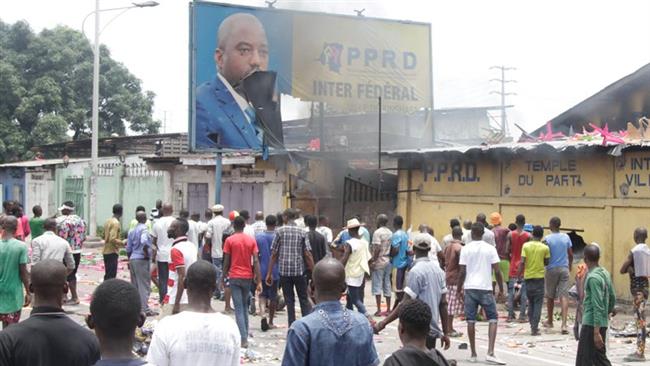Protest against controversial plan by President Joseph Kabila to continue to stay in power
Strikes have reportedly been staged in the capital of the Democratic Republic of the Congo (DRC) in protest at a controversial plan by President Joseph Kabila to continue to stay in power despite the end of his constitutionally-allowed term.
According to the AFP, roads in the northern parts of Kinshasa were totally deserted and most shops were closed at 9:00 am local time (0800 GMT) on Wednesday. They would have typically been bustling ahead of the work and school day. The up-market Gombe district was also unusually quiet.
The strikes were meant to protest a deal between the government and “fringe opposition” groups that allows Kabila to continue to rule the country until April 2018 by delaying presidential elections originally scheduled for this year.
The major opposition groups had earlier called for action to protest the deal, which was signed on Tuesday as part of “national dialog” initiated by the government in an attempt to reduce tensions over his controversial plans to stay in power for longer.
April 2018 will be more than a year after Kabila’s mandate expires according to the constitution. The biggest opposition party, the Union for Democracy and Social Progress, UDPS, had boycotted the so-called national dialog and asked for protests to give Kabila a “yellow card.”
The deal “unilaterally imposes Mr. Kabila at the head of the government in flagrant violation of the constitution, which sets the end of his mandate at December 20,” the secretary general of the UDPS, Jean Marc Kabund, said on Wednesday.
Last month, protests against moves to delay the presidential election resulted in at least 50 deaths. Kabila first took office in 2001; and in 2006, a new constitutional provision limited the presidency to a two-term limit that expires in December.
European Union foreign ministers on Monday said the bloc was “deeply concerned by the political situation” in DR Congo, saying that a “dialogue must lead to the holding of presidential and legislative elections as soon as possible in 2017.” Political tension has gripped the country since Kabila’s disputed re-election in November 2011.
Presstv




